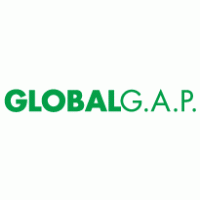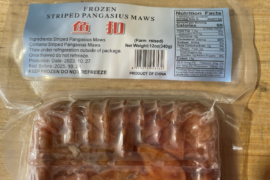The Global Aquaculture Alliance (GAA), Aquaculture Stewardship Council (ASC) and GLOBALG.A.P. on April 22 took a significant step forward in executing their memorandum of understanding (MoU) during the Seafood Expo Global (SEG) in Brussels, Belgium.
The three standards-setting organizations – which are working collaboratively to increase efficiency and reduce duplication in the auditing process – agreed to combined checklists for farms pursuing more than one certificate.
A combined checklist minimizes duplication of audit points between certification programs and comprises all audit points of one standard supplemented by specific add-on clauses for other standards. A farm pursuing multiple certifications can pick any one of the three programs as the primary standard and then select the desired add-ons.
ASC CEO Chris Ninnes, GAA CFO Jeff Fort and GLOBALG.A.P. Chairman Guy Callebaut participated in a brief ceremony at the Brussels Exhibition Center along with Dan Lee, standards coordinator for GAA’s Best Aquaculture Practices division, and other ASC and GLOBALG.A.P. representatives.
By signing the MoU two years ago, the three organizations recognized that by working together they can more effectively promote environmentally and socially responsible seafood farming and processing. The goal of the MoU is to make certification more accessible and create greater value to a larger number of farmers and processors.
About GAA
The Global Aquaculture Alliance is an international, non-profit trade association dedicated to advancing environmentally and socially responsible aquaculture. Through the development of its Best Aquaculture Practices certification standards, it has become a leading standards-setting organization for farm-raised seafood.
About ASC![]() The Aquaculture Stewardship Council (ASC) is as an independent, not-for-profit organization co-funded by the World Wildlife Fund (WWF) and The Sustainable Trade Initiative (IDH) in 2010 to manage the certification of responsible fish farming across the globe. The ASC standards require farm performance to be measured against both environmental and social requirements. Certification is through an independent third party process and (draft) reports are uploaded to the public ASC website. The on-pack ASC logo guarantees to consumers that the fish they purchase has been farmed with minimal impacts on the environment and on society. For more information, visit www.asc-aqua.org.
The Aquaculture Stewardship Council (ASC) is as an independent, not-for-profit organization co-funded by the World Wildlife Fund (WWF) and The Sustainable Trade Initiative (IDH) in 2010 to manage the certification of responsible fish farming across the globe. The ASC standards require farm performance to be measured against both environmental and social requirements. Certification is through an independent third party process and (draft) reports are uploaded to the public ASC website. The on-pack ASC logo guarantees to consumers that the fish they purchase has been farmed with minimal impacts on the environment and on society. For more information, visit www.asc-aqua.org.
 About GLOBALG.A.P.
About GLOBALG.A.P.
GLOBALG.A.P. Aquacultural Standards have been operational for over 10 years as part of a global food certification system for agricultural products. Its standards cover food safety, environmental, social and animal welfare requirements for feed, hatchery and farming operations. It operates as a business to business program with a consumer facing traceability code. GLOBALG.A.P. also operates a benchmarking system with more than 20 national and international standards recognized as equivalent.





